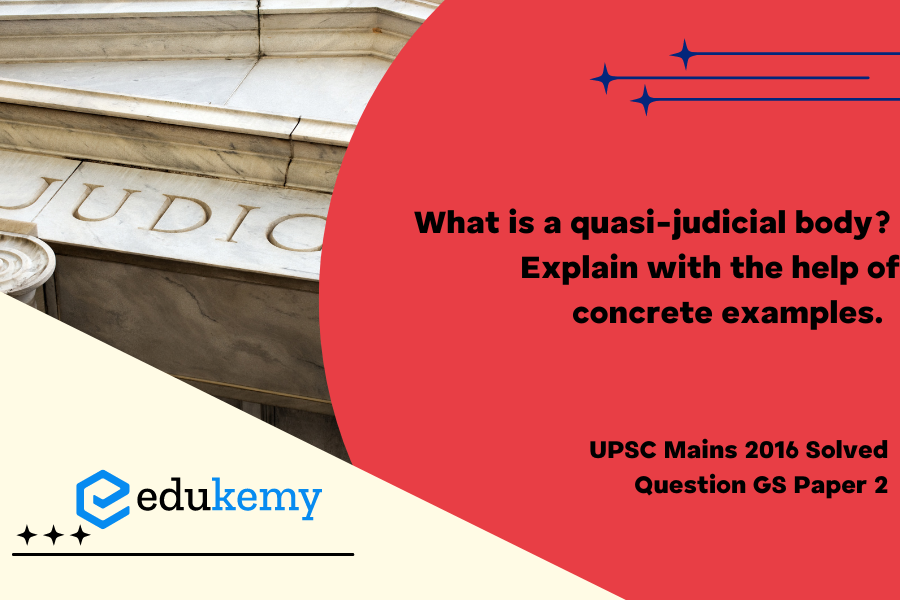A quasi-judicial body is an administrative entity vested with powers to adjudicate disputes and make decisions that have legal consequences, resembling a judicial function but operating within the framework of administrative law. Unlike traditional courts, quasi-judicial bodies are typically created by statutes or regulatory frameworks and possess specialized expertise in specific areas. These bodies play a crucial role in ensuring fair and efficient resolution of disputes, often involving complex technical or regulatory issues.
One illustrative example of a quasi-judicial body is the National Labor Relations Board (NLRB) in the United States. Tasked with overseeing labor disputes and enforcing labor laws, the NLRB conducts hearings, gathers evidence, and issues rulings to resolve conflicts between employers and employees. Similarly, the Securities and Exchange Commission (SEC) functions as a quasi-judicial body in the financial realm. It investigates securities-related violations, conducts hearings, and imposes sanctions to maintain the integrity of financial markets.
Tag: Statutory, regulatory, and various quasi-judicial bodies.
Contents
Decoding the Question:
- In the Introduction, try to briefly write what is a quasi-judicial body.
- In Body,
- Discuss the powers of quasi-judicial bodies.
- Second, discuss the limitations of quasi-judicial bodies.
- In Conclusion, try to end your answer with some examples.
Answer:
A quasi-judicial body is an organization or body which has powers similar to that of the law imposing bodies but it is not a court. The word ‘quasi’ means ‘not exactly.’ An authority is described as ‘quasi-judicial’ when it has some attributes of judicial functions, but not all. These mainly govern the administrative areas. The courts (judiciary) have the power to preside over all kinds of disputes but the quasi-judicial bodies are the ones with the powers of imposing laws on administrative agencies. These bodies help in reducing the burden of the courts.

Powers of Quasi-Judicial Bodies:
- They have adjudicating power like a breach in discipline, trust in money matters or otherwise, the conduct of rules, etc., and they can decide punishments for the guilty.
- These bodies act as an alternative justice system to lessen the burden of the courts and have the power to impose laws on administrative agencies instead of supervising all types of disputes like courts.
- They function in specific areas like financial markets (SEBI), human rights (NHRC), market practices (Competition Commission of India), land use or zoning, public standards, employment laws, etc.
- They can be formed on the matter which is pending in the court; the court has the right to appoint the members of such bodies.
- Some of the quasi-judicial bodies in India are the National Human Rights Commission, State Human Rights Commission, Central Information Commission, National Consumer Disputes Redressal Commission, etc.
- These bodies can be statutory, regulatory, or constitutional, which work on simple procedures.
- These bodies comprise experts in Finance, Economics, Law, etc., who can understand the technicalities, suggest necessary actions, and study their consequences.
- It provides low-cost and quick solutions to the issues, which improves the accessibility of justice to people.
Limitations of Quasi-judicial Bodies:
- An authority is described as quasi-judicial when it has some attributes of judicial provisions but not all.
- It has powers analogous to that of the law imposing bodies but it is not a court.
- Quasi-judicial bodies have the power to impose laws on administrative agencies, instead of supervising all types of disputes like courts.
- Their activity is restricted to the issues that concern the particular administrative agency.
- Their powers are usually limited to a particular area of expertise, such as financial markets (SEBI), human rights (NHRC), market practices (Competition Commission of India) etc. Their action may be appealed to a court of law. They act as an alternative justice system to lessen the burden of the courts.
- These bodies have a lack of funds to meet their day-to-day expenses and are largely dependent on the government.
The Quasi-judicial bodies are crucial for ensuring effective and efficient administration. These were established to overcome the situation that arose due to the pendency of cases in various Courts and tribunals. These emerged not with the sole promise of the speedy, effective, decentralized dispensation of justice but also the expertise and knowledge in specialized areas that was felt to be lacking in the judges of traditional Courts.
In case you still have your doubts, contact us on 9811333901.
For UPSC Prelims Resources, Click here
For Daily Updates and Study Material:
Join our Telegram Channel – Edukemy for IAS
- 1. Learn through Videos – here
- 2. Be Exam Ready by Practicing Daily MCQs – here
- 3. Daily Newsletter – Get all your Current Affairs Covered – here
- 4. Mains Answer Writing Practice – here


